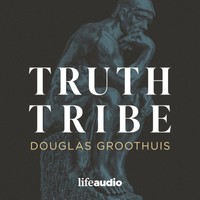Daily Devotional, July 7
July 07, 2010
While serving as a professor at the University of Washington, sociologist Rodney Stark wrote his influential book, The Rise of Christianity, to answer the riddle of Christianity's explosive growth during the first 3 centuries. How did this upstart faith, originating in a dusty corner of Palestine, expand to a globe-changing movement within a matter of years? Essentially, Stark's answer was that Christians lived their faith in tangible ways. For instance, they treated women better than the broader culture; and when several waves of plague and epidemics ravaged the Roman Empire, it was primarily Christians who stayed, tending to the sick. This is the very heart of the gospel: Faith as an embodied life, faith that takes on skin and bones, faith, not merely discussed and affirmed, but lived in the way of Jesus. The center of Christianity is not big ideas (though we have many) or overarching systems of belief (and we have these too). The center of our faith is a person, Jesus Christ, who brought God to us. Jesus is God in human skin. And now, in a remarkable turn, we who claim Jesus as Lord are sent into our world, carrying Jesus with us. We are invited to bring God near to every friend and stranger. We, quite literally, are "the body of Christ." And no believer in Christ is excluded from this identity as Jesus' body; "each of [us] is a part" (1 Cor. 12:27). God continues to work in His world to bring justice, to offer mercy, to love the forgotten. And He uses those who form the body of Christ, those He has transformed into new people (Romans 12:2). As Dietrich Bonhoeffer reminded us, "the body of Christ has penetrated into the heart of the world in the form of the church." , Winn Collier














